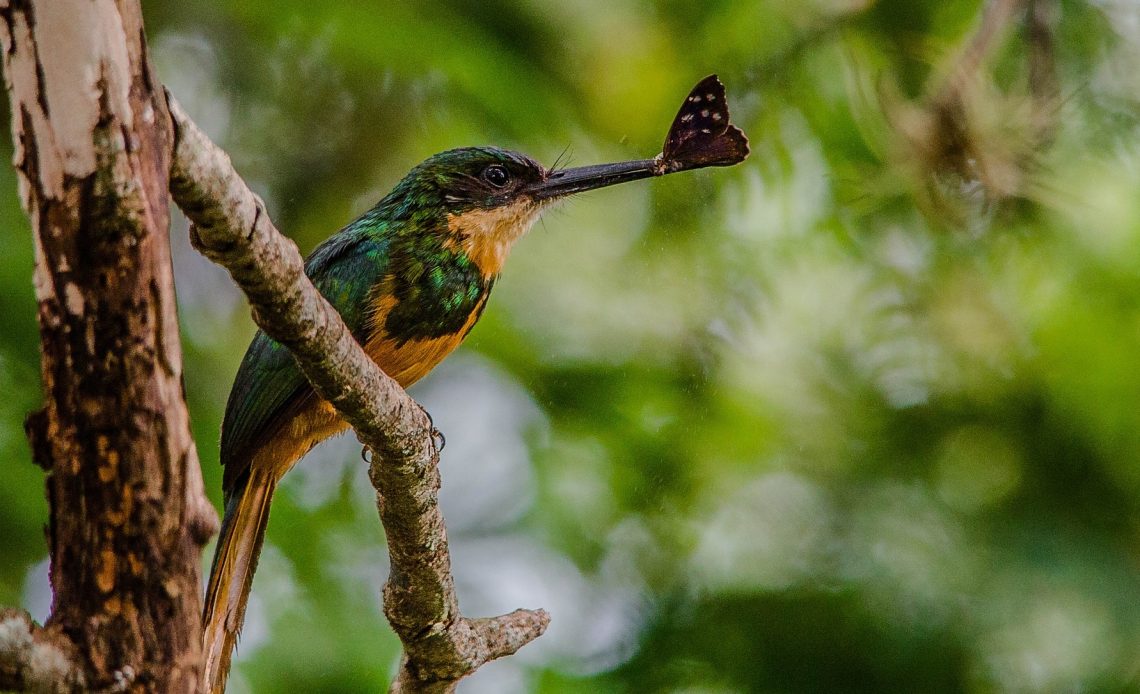

We’re here to help! Wild Yards is a completely free website that is 100% dedicated to helping you create a wildlife-friendly, sustainable yard. Read more
WildYards is reader-supported. When you buy a product through a link on our site, we may earn a comission. Every product is independently selected by our (obsessive) editors and our reviews are unbiased and objective. Read more about our mission or our privacy policy.
Many gardeners and wild yard owners already know that hummingbirds love to feed on flower nectar! What’s especially interesting is that it doesn’t make up the entirety of their diets. These feathered pollinators will eat insects, too – but do hummingbirds eat flies?
Hummingbirds will eat flies if there’s an opportunity. As much as they need nectar and the calories it provides, hummingbirds also need a regular source of protein and other nutrients. While they might not hunt flies down, hummers will snap up flies if they flutter in their direction.
Do hummingbirds catch insects in flight?
Hummingbirds’ beaks use an almost ‘elastic’ snapping motion to snatch flies out of the air! It’s one of few moments where we can see these pollinators open their beaks, if only for a split second. Any flies unlucky to buzz close to a hungry hummingbird likely won’t be able to escape too quickly.
This process of catching flies and other insects out of the air is referred to in studies as ‘snap buckling’. This refers to a similar motion from plants such as the Venus flytrap. Intriguingly, snap buckling is extremely rare in the animal kingdom – and the motion exhibited by hummingbirds is thought to be the first-ever recorded in vertebrates!
Why do hummingbirds eat flies?
Hummingbirds typically eat flies, or Diptera, to help fill a need for protein and other nutrients unavailable in nectar. While the birds will readily fill their daily diets with the natural sugar produced by flowers, this typically only fulfills a caloric need. Thanks to their record-breaking metabolisms, hummingbirds need an extraordinary amount of calories for their size.
Hummingbirds have acquired tastes for more than flies alone to top up their diets to keep healthy. Hummingbirds will eat aphids and mosquitoes, making them something of nature’s resident pest controller. They won’t necessarily need to hunt down insects at the height of summer, and it helps that these birds are particularly opportunistic feeders.
In some cases, hummingbirds may eat flies if they are buzzing around plants they particularly enjoy or sweet-smelling fruits that attract fruit flies and fungus gnats. Hummingbirds normally won’t eat fruit outright (such as tomatoes), but they are known to hover around fruit-bearing plants thanks to insects likely to be fluttering around.
The number of flies or other insects hummingbirds eats will vary daily. It’s usually dictated by available fly populations, for example, or what the birds need from their diet at any given time. Some hummingbirds will readily snap up to a thousand insects per day – but in some cases, as few as ten flies will be enough to satiate them.
How do you feed insects to hummingbirds?
There’s often little need to feed flies and insects to hummingbirds directly, providing you have a wild yard full of a variety of sweet-smelling flowers and fruit-bearing plants. Flies propagate very quickly, meaning it’s highly likely a hummingbird will find the protein and other nutrients it needs while hovering around your garden.
To help keep hummingbirds fed, growing some of their favorite flowers in abundance is essential. For example, a garden full with sunflowers, lantana, morning glories, dipladenia, and zinnias will likely give hummers plenty of nectar to persist on. Grow a variety of these blooms, and you’ll also attract hummingbirds regularly.
Many of these flowers will also attract flies. To many gardeners, flies can be a nuisance – but when you’re trying to feed hummingbirds visiting your yard, the more you can entice, the better. Sunflowers, in particular, are notable for attracting many winged creatures – flies included – and their various, minuscule pockets of nectar always offer reliable feeding grounds for hummingbirds.
Can I rely on hummingbirds to eat flies in my garden?
Fly populations will vary, as will a hummingbird’s dietary needs from day to day – which means while our winged friends can do a great job of keeping pest levels low, you shouldn’t depend on them to remove all unwanted creatures outright.
Many people attract hummingbirds to their yards to help control mosquito populations. For a genuinely wild yard, it’s always a good idea to encourage natural pest control over using potentially harmful chemicals and sprays.
Flies provide sustenance for many helpful creatures that visit our gardens – hummingbirds included. To keep hummers coming back to your yard time and again, don’t be too quick to remove winged insects outright – they need them to help balance their diets!
